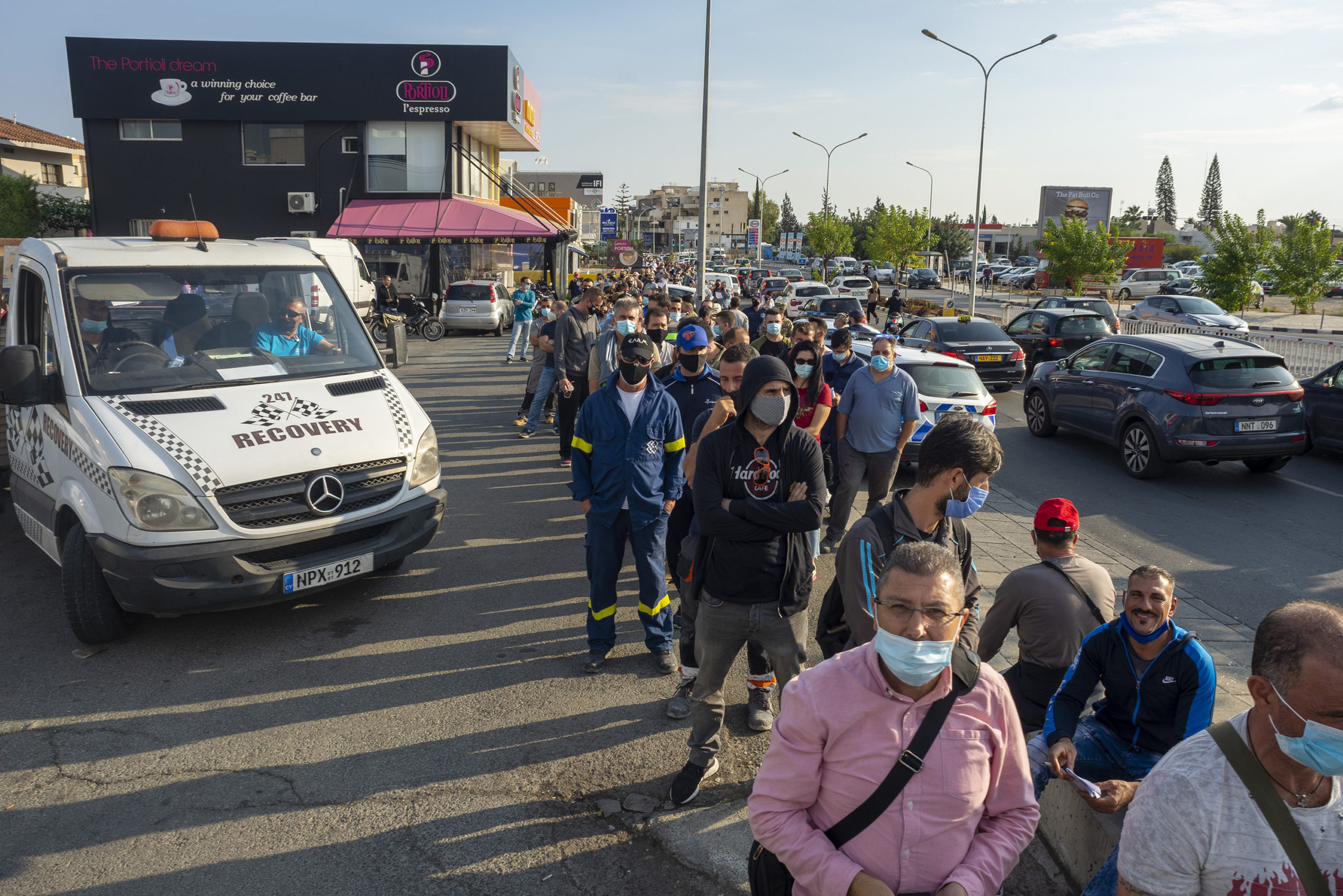A big headache for health authorities around the world in their struggle to control the pandemic are COVID denier movements and conspiracy theorists, but also fatigue and trust issues.
Cyprus is no exception with COVID deniers taking to the streets challenging not only government measures but also the vaccines scientists are placing their hopes on to end the COVID-19 pandemic.
Health officials in Cyprus argue that the virus is now widespread in the community as large numbers of people are not to be abiding by health decrees and regulations.
Talking to the Financial Mirror, Psychologist Dr Charis Psaltis, Associate Professor of Social and Developmental Psychology at the University of Cyprus, said COVID-19 conspiracy theories are popular among a sizeable proportion of society.
“Research suggests that if one person believes in one conspiracy theory, they are likely to get hooked into more conspiracy theories, even when those theories contradict one another,” said Psaltis.
In Cyprus, COVID conspiracy theorists in their rhetoric and activities argue that COVID-19 vaccines are a means to inject microchips into people with that belief intertwined with 5G networks needed to control people.
“The most common conspiracy theory said Psaltis “is the one which simply says COVID is a myth manufactured for big pharmaceuticals to make big money”.
“However, there is a sizeable part of society which seem not to be following health protocols, simply because they are tired from abiding by restrictions for almost nine months now. Measures which do not seem to be working at the moment”.
Cyprus saw a 75-day total lockdown imposed in March when the island reported its first cases of COVID-19.
Lockdown was gradually eased in May.
The government introduced a tiered system of measures with curfews and hospitality closing times, then introduced local lockdowns in Limassol and Paphos last month.
When the situation islandwide worsened it opted for a national curfew and early closing of bars, restaurants, and cafes.
This also did not work and hospitality, shopping malls were shut down completely last week until 31 December, attending church was also banned.
Until October, Cyprus had kept a lid on cases, but a resurgence of the virus saw a rollercoaster of daily cases spiking to 424 on Friday.
Psaltis argues that Cypriots as a Mediterranean people are easily tempted to give up, leaving everything to fate.
“Kismet. ‘If I am to get it, I will get it’ sort of mentality kicks in.”
He said morale is broken because of controversial messages sent out by the government when implementing measures.
“A sizeable percentage of society believe that decisions are political and financial rather than based on health concerns,” said Psaltis.
“People are confused about the importance of following measures when they see the government applying different standards on different occasions.
“For example, they see tighter rules for theatres and cinemas while churches were allowed to have up to 75 people.”
Psaltis said professional groups feel the authorities do not care about them, giving the example of teachers and students.
“If authorities had cared about teacher, student wellbeing, they would have moved classes online, a long time ago.
“However, it was made clear that authorities were more concerned over keeping the economy running, rather than having people stay at home with their children.”
He said that students and teachers have every right to be genuinely scared.
“If one is to look at results of rapid tests, then they would see that a 3-4% of tests conducted in an area like Strovolos, Nicosia are positive.
“This means that in a school of 300 students you would have at least 10 cases, indicating that the virus is widespread in schools”.
Waving the finger
“Authorities have opted to wave the finger at people in an ever-increasing authoritarian manner, which has become characteristic of the overall model of governance this administration is following.”
Dr Christiana Karayianni, lecturer in Media and Cultural studies at Frederick University, said that people are obeying measures out of fear rather than anything else.
“I think that citizens are abiding by health protocols to a great extent, mainly due to hefty fines imposed, even though unconvinced of the message, and that is where, I think, the problem lies,” said Karayianni.
She argued that authorities have failed to gain public trust when it comes to managing the crisis due to several factors.
“Corruption scandals involving state authorities that have come to light recently, have taken their toll on the government’s relation with people.”
Karayianni said communication methods employed by the state to get their message across were “problematic”.
“It is essential there be transparency behind decision-making on any measure so that citizens understand both the logic and the benefits of, for example, of a 9 pm curfew.”
“In other words, if exempting hunters from the curfew can be scientifically justified, or the fact that theatres are allowed to be only half full while churches can hold mass in the presence of 75 people, then the state must provide these explanations.”
“To be fair, the pandemic has caused an unprecedented crisis, it is to some extent expected that the state will sometimes mishandle it.
“Even in such cases, all that is required is honest communication and acknowledgement of the mistake to restore trust.”
She said the muddled way the government has managed the second wave has damaged public trust in decision-making centres.
“People remember the sloppiness exhibited by authorities when it came to preparing classrooms with the Education Ministry not sure how to rearrange seating to keep to social distancing just days before schools opened in September.”
Karayianni pointed to New Zealand as an example to follow.
“The Prime Minister of New Zealand, Jacinda Ardern, is one such example, following a people-centred approach, to develop a path of almost personal communication with citizens which is characterized by transparency. It is extremely important in this difficult period we are all going through.”










